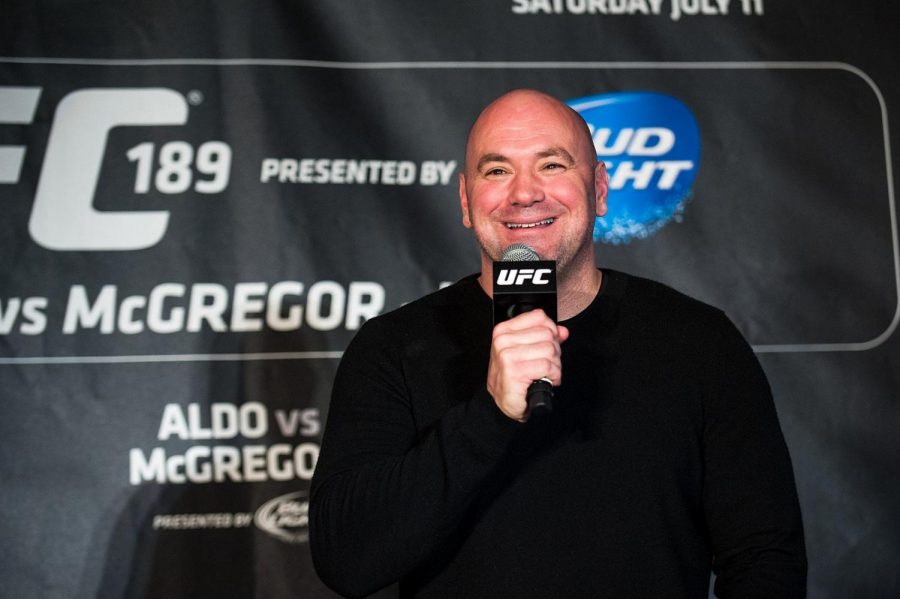Are UFC Fighters Underpaid?
December 9, 2021
Unlike sports leagues like The National Football League (NFL) and Major League Baseball (MLB), the Ultimate Fighting Championship (UFC) doesn’t have set team structures. In other words, all fighters are on one team: Team UFC. With nearly 700 fighters under contract as of 2020, the UFC is one of the largest sports in the world. But many seem to raise the question, “are UFC fighters underpaid?”
To give a little context to this idea, a new lightweight (155lbs.) champion was crowned last summer in a thrilling back and forth fight. After coming back from a very difficult first-round match, Charles Oliveira defeated Michael Chandler and was dubbed the lightweight champion. After the excitement settled, Oliveira began to describe his financial situation in interviews. He explained the cost structure in the UFC and all of his expenses. He told a UFC media outlet MMAMania that “I have to pay for training, supplementation, it’s complicated.” He added, “People think I’m rich, but I’m not.” The numbers show that Oliveira came out of his main event fight $250,000 richer, but it’s not that simple. In Oliveira’s words, “The [gym] alone gets 30 percent, then you need to discount another 12 or 15 percent depending on which U.S. state you fought in. When you see it at the end you got less than guys who didn’t do anything.”
To use the MLB as a point of comparison, the Mike Trouts of the MMA world are making the same amount of money as the batboys. According to PickyTop.com, combat sports fall second to tennis as the lowest average salary per athlete. To be fair the UFC does function as a meritocracy in which fighters are awarded bonuses for items like Fight of the Night and KO of the Night. Fighters quickly find themselves in unfavorable contracts as their careers blow up. A great example of this is Sean O’Malley. O’Malley draws many viewers for the UFC, but he is stuck on a $70,000 per fight cap. With bonuses, he can now make up to $220,000 based on his performance that night.
If fighters don’t like the pay, why don’t they just leave the UFC? SportingFerret.com explained ”The simple fact is that a lot of these athletes don’t really have anywhere else to turn. Whilst other MMA promotions do exist, such as Bellator and Asia’s ONE fighting championship, they have nowhere near the draw of the UFC.” Fighters are locked due to the fact that there is only one true promotion. Ironically, Dana White, the UFC’s president, was adamant about not laying off staff during the COVID-19 pandemic. The president of the UFC went as far as to move their entire operation to Abu-Dhabi in order to keep the fights on. While employees of the UFC are taken care of, the fighters, the key ingredient that makes the UFC one of the largest sporting promotions in the world are overlooked. Fighters have turned to social media and GoFundMe for support. One of the most outspoken proponents of unfair UFC pay is Nate Diaz. Diaz has been battling with White for the past few years. In typic Diaz fashion. He vented to the stating, “As far as I’m concerned, I don’t get paid [expletive]. I get $60,000 (to show) and $60,000 (to win). If I were doing this for the fame, I would have quit seven years ago. I can’t tell you what my brother and Gil make, but I can tell you that they signed a contract for more than I get paid to headline and win a fight, and that’s [expletive].” The list of fighters that are unhappy with their pay is growing and continues to be an annoyance to White. After UFC 266, rival combat-sports promoter Oscar De La Hoya called out White about the lack of compensation given to UFC star Alexander Volkanovsk after his fight against Brian Ortega. White switched to the offensive just a few days later. Explaining, “We run a business. We’ve been very good at it. Not only do we run the business, we continue to grow the sport and take everybody along with us … Everybody makes money. Everybody makes a living. You know, there are some hard stories and some sad stories. Some guy came in at this. You’re either [expletive] good enough to be here or you’re not. This is the big leagues. It’s like the NFL. You can either last here or you can’t last here, but people get paid. People get paid a lot of money.”

